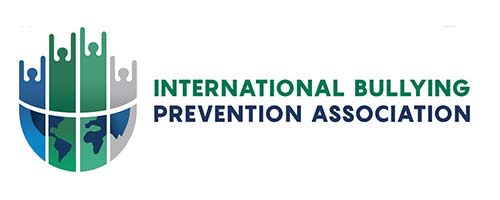| Friday, October 20, 2017 | |
| Registration and Continental Breakfast | |
| America Is Changing: Are You Ready? Eddie Moore, Ph.D. Dr., Founder, America & Moore, LLC This interactive, informational, challenging and energetic session examines and explores issues of diversity, privilege, oppression and leadership across America and challenges participants to examine their own biases, behaviors and belief systems. We all have an excellent opportunity to be positive role models, powerful decision makers, and effective agents of change, if we have the tools. We need more leaders for social justice and equity across America. Do you have the skills and ability to lead? Are we making any progress? | |
| Bullying and Students with Disabilities Jody Manning, Director, Pacer Center Studies have found that children with disabilities are two to three times more likely to be bullied than their non-disabled peers. This session is presented by PACER’s National Bullying Prevention, which has an emphasis on advocating for families of students with disabilities. Topics to include laws and policies designed to protect students with disabilities, helpful facts to know, methods to build advocacy, and resources designed by PACER to address bullying of students with disabilities. This interactive session also includes role play and brainstorming of ideas and solutions. Agenda features creatively sharing information and resources through: story telling role play presentation with laws and rights. Things to know, group brainstorming, videos and classroom activities will be included. | |
| Networking Lunch Be sure to take time during lunch to visit our vendor tables, they are providing some fantastic resources! | |
| Bias-Based Bullying and Cyberbullying Elizabeth Englander, Ph.D., Professor and Founder, Director of the Massachusetts Aggression Reduction Center Meghan McCoy, Ed.D., Program Coordinator, Massachusetts Aggression Reduction Center Media reports suggest that recently, dramatic increases in bias-based bullying have been observed throughout the United States. Bias-based bullying and cyberbullying involves, is motivated by, or occurs within, the context of bias or prejudice. It has also been defined as “harassment, intimidation or bullying based on a person's gender, race, ethnicity, perceived sexual orientation, religion, age, familial status, or mental, physical or sensory handicap” (Walton, 2017). Examples of bias-based bullying include bullying that is focused on a student’s sexual orientation, gender identity, religion, ethnicity, or race. Many include the targeting of an overweight child as a form of bias-based bullying as well (Yufe, Taube-Schiff, Fergus, & Sockalingam, 2016). Previous research has suggested that this type of bullying may be particularly damaging psychologically to victims; it has been associated with depression, anxiety, low self-esteem, and conduct disorders and its increased use costs the United States enormous resources in protection and mental health costs (Walton, 2017). Some perspectives suggest that this type of bullying has always occurred, but is simply more noticeable in the current political climate. Other perspectives suggest that the frequent use of biased language by politicians has recently provided a negative model and emboldened children to justify bullying and cyberbullying on the basis of differences. The news media in recent months has reported dramatic increases in bias-based bullying. What types of bias-based bullying and cyberbullying have increased? What types have decreased? This presentation will review new research on bias-based bullying examining 1,272 adolescent subjects studied between 2014 and 2017 at the Massachusetts Aggression Reduction Center. The study examines the frequency, fluctuation, and types of bias-based bullying reported by victims between 2014 and 2017. It also examines whether bias-based bullying is more prevalent in traditional settings (e.g., school) or through digital technology (e.g., social media), and what mental health factors (e.g., depression, anxiety) it is associated with. The study also compares bias-based and other types of bullying and cyberbullying. What lessons have been learned from this and other research? Understanding how to utilize this new research to build appropriate programming for faculty and students is key. This presentation will review the findings of this study and how we have translated these findings into new programs for use with children in K-12 schools. Programs will be demonstrated during the presentation. | |
| Creating Inclusive Culture Intentionally Harry Weaver, Education Director, Anti-Defamation League Hateful rhetoric and incivility can be commonplace in our society. Have you ever heard something prejudiced but weren't sure how to respond? Or tried to intervene in bullying but aren't sure you were effective? Or gotten angry at a family member who said biased things, but froze up when you tried to respond? This presentation will examine identity, explicit/implicit bias and how this affects the way we interact with others. It will also focus on empowering participants with identifying practical skills and strategies to help prepare you to challenge and respond to biased behaviors. | |






